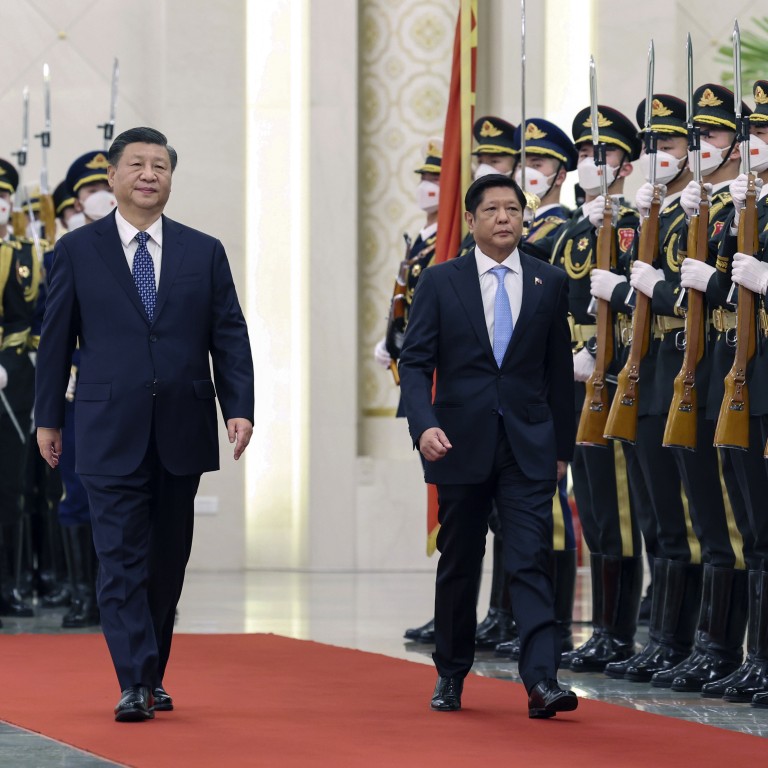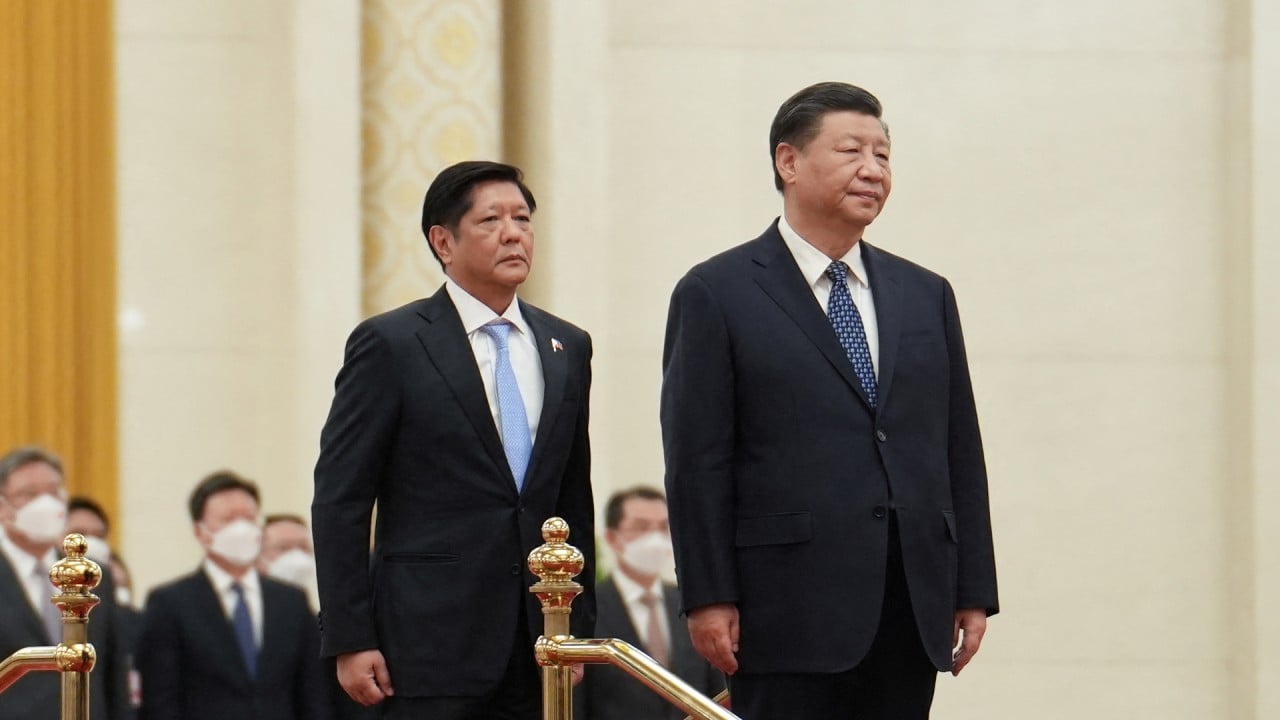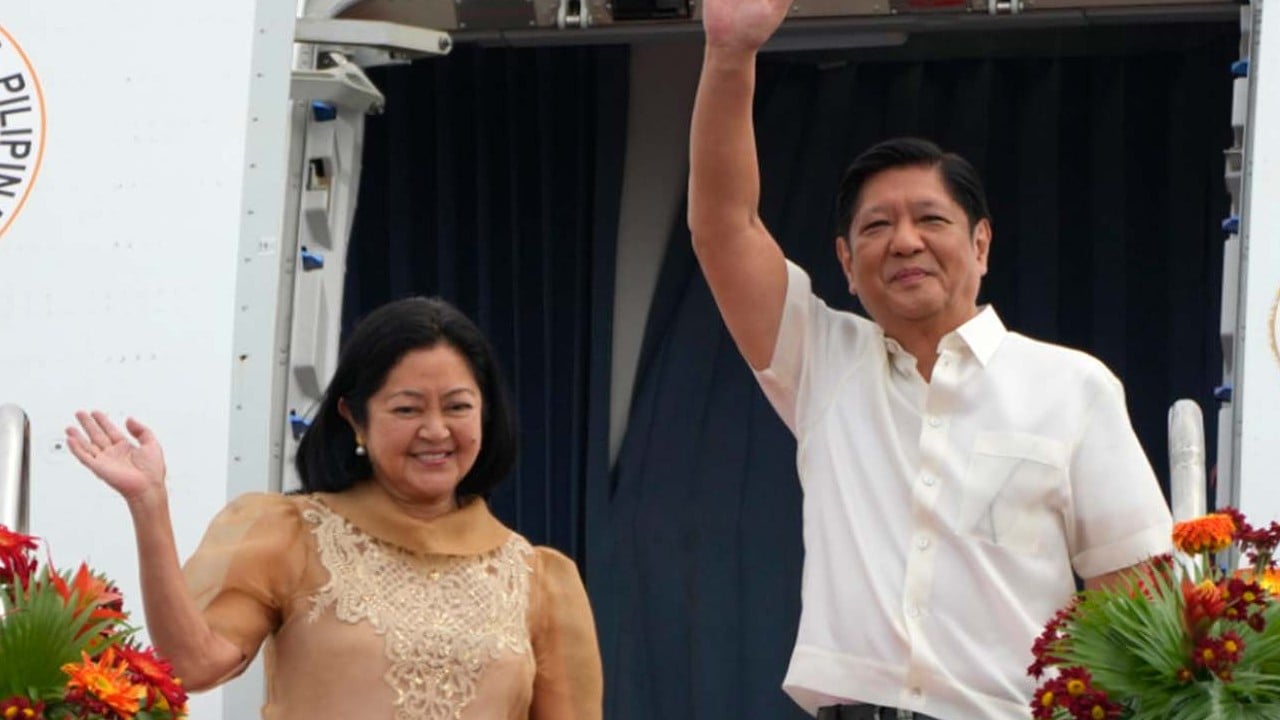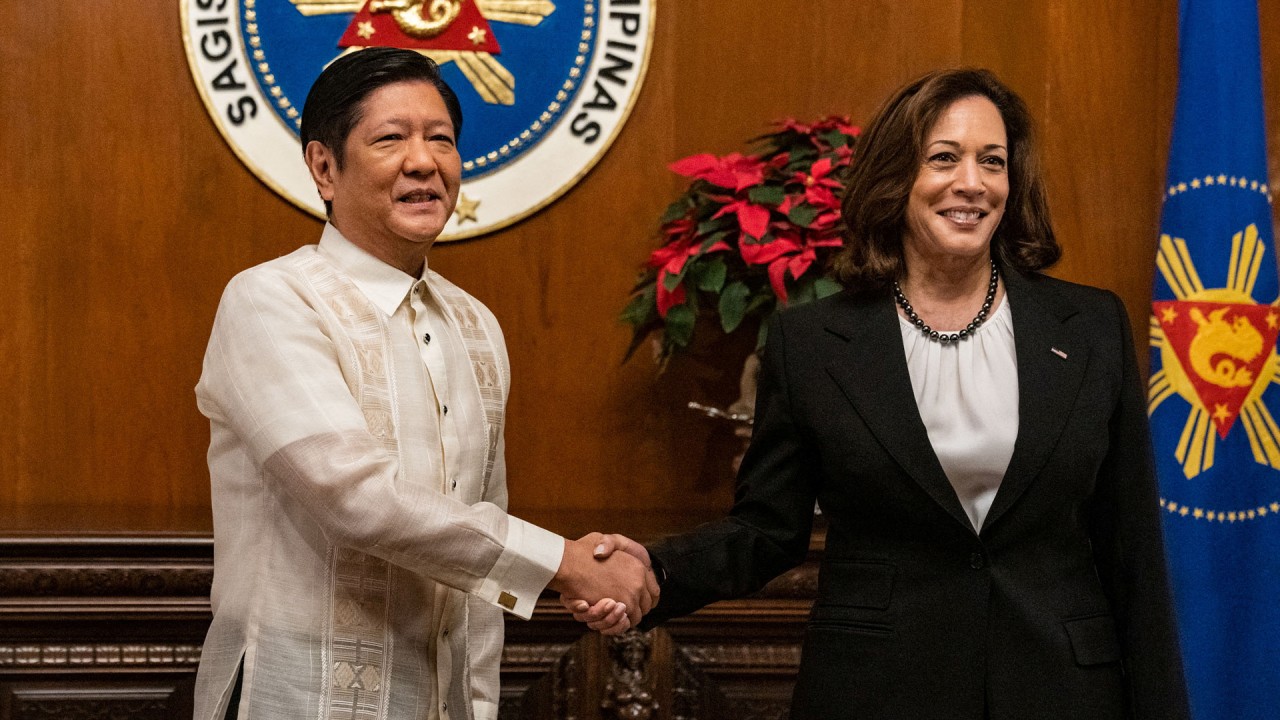
China and Philippines agree on new channels to resolve South China Sea maritime disputes among their 14 new deals
- After Xi-Marcos meeting, a joint statement says maritime issues do not comprise the ‘sum-total’ of relations between China and the Philippines
- Philippine president says he and Xi discussed how to avoid ‘misunderstandings that could trigger a bigger problem than what we already have’
Analysts said the meeting yielded positive outcomes, but obstacles remained given that previous “proclamations of good intentions” had not resolved territorial disputes.
It reiterates Manila’s earlier comment that “maritime issues don’t define the totality of our relationship with China”.
“Both sides reaffirmed the importance of maintaining and promoting peace and stability in the region and the freedom of navigation in and overflight above the South China Sea, and reached consensus on the peaceful resolution of disputes on the basis of the Declaration on the Conduct of Parties in the South China Sea, the United Nations Charter and the 1982 United Nations Convention on the Law of the Sea,” Thursday’s joint statement said.
Parts of the South China Sea are claimed by several states, including China, the Philippines, Vietnam, Malaysia and Indonesia.
Ahead of the visit, Manila said the thorny subject would be on the table and Marcos “acknowledges the importance of this issue”.
The two sides agreed that confidence-building measures would contribute to improving mutual trust, and a direct communication mechanism between officials of their foreign ministries would be established.
China offers to open talks on oil exploration deal with Philippines
According to S Mahmud Ali, an international relations expert at the University of Malaya’s Institute of China Studies, the mechanism is intended to “maintain a measure of stable calm”.
“The aspiration is to build on the foundations built with former President Rodrigo Duterte and ensure direct communications between … Beijing and Manila [to] address differences at an early stage, preventing an escalation into ‘incidents’,” Ali said, adding that the mechanism’s efficacy could only be observed after it has been operational for some time.
The joint statement said Marcos and Xi reaffirmed the principles of the 1975 China-Philippines Joint Communique that established diplomatic relations, including the peaceful settlement of all disputes, mutual respect for sovereignty and territorial integrity and non-interference in each other’s internal affairs. The Philippines also restated its adherence to the one-China policy.
Marcos, who was visiting China for the first time since taking office in June, told reporters separately that he and Xi had “discussed what we can do to move forward, to avoid any possible mistakes, misunderstandings that could trigger a bigger problem than what we already have”.
He added that Xi had promised a compromise and solution that could allow Philippine fishermen to operate in their historic fishing grounds.
Ali said previous agreements with rival claimants had yet to resolve disputes.
“It’s helpful to recall that from 2005 to 2008, China, the Philippines and Vietnam implemented an agreement on joint exploration of hydrocarbon resources in the South China Sea. The agreement was not renewed and tensions rose again. There are, therefore, both a precedent for collaborative action and a template for future cooperation,” Ali said.
He added that their agreement on dispute resolution would test Beijing and Manila, among other claimants, and the Association of Southeast Asian Nations as a collective body.
“The very slow pace of progress suggests major challenges remain,” Ali said. “Economic relations, used with subtlety and sophistication, can ease political divergences.”
Beijing trip to test Philippine leader as South China Sea disputes loom
Beijing and Manila agreed to take their “comprehensive strategic cooperation” to new heights, which would include expanding trade, cultural exchanges, green transformation and coordination on regional affairs.
A total of 14 agreements were signed on Wednesday, including deals on agriculture, infrastructure, development cooperation, maritime security and tourism, among others, according to a statement from the Philippine presidential office.
A memorandum of understanding on oil and gas development signed in 2018 was mentioned during the meeting, with both sides agreeing to resume discussions and build upon the outcomes of previous talks. Areas such as solar power, wind energy, electric vehicles and nuclear energy for electricity generation will be explored.
Also signed were four loan agreements committing China to finance the construction of bridges in the Philippine capital. Payments will be made in both US dollars and yuan.
Before meeting Xi, Marcos said he anticipated working towards “shifting the trajectory of our relations to a higher gear” to bring “numerous prospects and abundant opportunities” for the peace and development of both countries.
According to Xu Qinduo, a political analyst at the Pangoal Institution, a Chinese think tank, the meeting is likely to set the tone for relations between the two countries throughout Marcos’s six-year term.
“For the Philippines and for Marcos, economic recovery and growth is the priority after three years of the Covid-19 pandemic,” Xu said.
“For China, reconfirmation of a relationship with stability and continuity of dialogue and cooperation is an important move that could ward off the US attempt to isolate China and sabotage its ties with the Philippines.”
Mystery airship spotted over Philippines near South China Sea
In the joint statement, the two countries referred to each other as “close neighbours, kin and partners that help and understand each other towards win-win results through mutually beneficial cooperation”.
Xi also promised cooperation, from supporting Chinese investment in the Philippines, to helping its neighbour develop villages and agricultural technology, basic education, meteorology, space science and vaccines.
Xu, who also teaches at Renmin University of China, said Beijing and Manila’s agreement to settle their differences diplomatically would unsettle Washington.
“The US engages in a zero-sum approach in dealing with China … It’s expected that Washington will continue to push for more military presence and military engagement with the Philippines, including more arms sales or more military deployment in the country as well as in the region,” he said.




